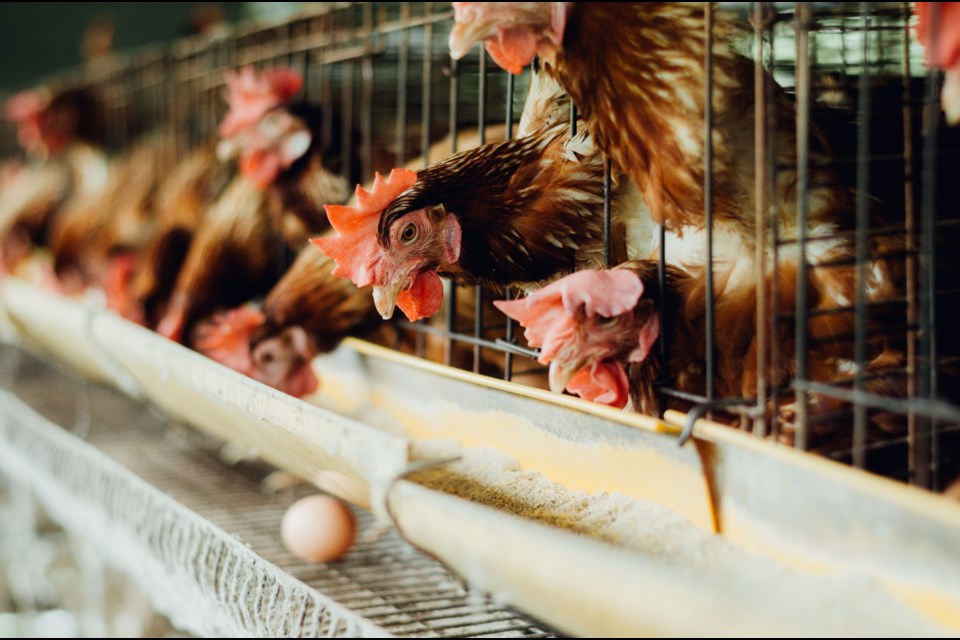When Whataburger announced they would be transitioning to cage-free eggs back in 2011, consumers and animal welfare activists were pleased with the company's promise to treat their animals more humanely.
With over 900 locations throughout the United States and being the 27th largest restaurant chain based on 2021 sales, Whataburger's failure to implement their cage-free egg policy hasn't gone unnoticed, especially when other heavy hitters in the fast food industry have. It is estimated that Whataburger uses over 28 million eggs a year, impacting about 101,853 hens that are suffering in cages.
"Places like McDonald's, Taco Bell and Burger King have all reported cage-free progress or fulfillment that has been verified," said Karen Hirsch, public relations manager for The Humane League. "Whataburger is very profitable and reports have shown that it costs very little to make the transition to removing hens from cages. Studies have found that the size of the cages are little bigger than an iPad and cause significant distress to the hens."
Hirsch explained that it might surprise consumers to know that eggs are one of the worst animal products available in terms of animal welfare and efforts have been made to improve the conditions in which hens live. She noted that besides the small, enclosed places the hens are kept in that don't allow the birds to fully extend their necks or stretch their wings, many develop sores from having to stand on wire floors and from trying to make nests on top of each other.
She also explained that according to a study done by the Center for Food Safety, egg-laying hens that are kept in confined spaces are 25 times more likely to harbour eggs with Salmonella and extreme confinement increases the risk of E. Coli and another pandemic. As of 2022, over 35% of all eggs in the United States come from cage-free, egg-laying hens - up from 4% in 2010.
"There is no public evidence that Whataburger has done anything to transition to cage-free eggs as pledged, they haven't done anything," said Hirsch. "If they did publish a cage-free policy, Whataburger could really reinforce its focus on food quality, higher animal welfare, and set an example for other direct regional competitors."
With 38 locations in Arizona, including one in Queen Creek, Whataburger has a respectable presence in the state. According to the U.S. Census Bureau, the Town of Queen Creek's population grew by 8.9%, making it the third highest in the country as of May 2022.
With the high rate of population and economic growth in the town, Whataburger might have a competitive edge in the fast food market if they follow through on the cage-free pledge they made back in 2011; Hirsch is hopeful the likely positive customer response will prompt other fast food companies to make the same pledge as well. In the meantime, other Queen Creek fast food establishments such as McDonald's and Taco Bell may benefit from following through on their promise when it comes to attracting more socially conscious consumers.
"Consumers are really starting to respond that they do not support these cages and companies are listening," said Hirsch. "Companies that implement a cage-free policy get to charge a little more for their eggs and they get to be seen as a consumer-conscious, socially conscious organization. There's a lot of positives for the producers, so they don't need to keep the hens smashed up together like that, it's unneccesary."
To learn more about The Humane League and their mission to ensure the welfare of animals raised for food, visit their website at thehumaneleague.org.



